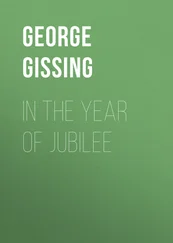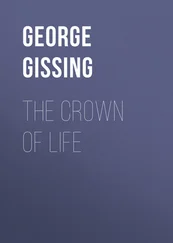George Gissing - The Whirlpool
Здесь есть возможность читать онлайн «George Gissing - The Whirlpool» — ознакомительный отрывок электронной книги совершенно бесплатно, а после прочтения отрывка купить полную версию. В некоторых случаях можно слушать аудио, скачать через торрент в формате fb2 и присутствует краткое содержание. Жанр: foreign_prose, literature_19, foreign_antique, на английском языке. Описание произведения, (предисловие) а так же отзывы посетителей доступны на портале библиотеки ЛибКат.
- Название:The Whirlpool
- Автор:
- Жанр:
- Год:неизвестен
- ISBN:нет данных
- Рейтинг книги:4 / 5. Голосов: 1
-
Избранное:Добавить в избранное
- Отзывы:
-
Ваша оценка:
- 80
- 1
- 2
- 3
- 4
- 5
The Whirlpool: краткое содержание, описание и аннотация
Предлагаем к чтению аннотацию, описание, краткое содержание или предисловие (зависит от того, что написал сам автор книги «The Whirlpool»). Если вы не нашли необходимую информацию о книге — напишите в комментариях, мы постараемся отыскать её.
The Whirlpool — читать онлайн ознакомительный отрывок
Ниже представлен текст книги, разбитый по страницам. Система сохранения места последней прочитанной страницы, позволяет с удобством читать онлайн бесплатно книгу «The Whirlpool», без необходимости каждый раз заново искать на чём Вы остановились. Поставьте закладку, и сможете в любой момент перейти на страницу, на которой закончили чтение.
Интервал:
Закладка:
The restless night brought torment of the mind and harassed spirits. Redgrave's proposal echoed in the vacant chambers of her life, sounding no longer an affront, but an allurement. Why, indeed, had she repelled it so unthinkingly? It did not necessarily mean scandal. He had not invited her to open defiance of the world. 'You can absolutely trust me; I am discretion itself. All resources are at my command.' Why had she rejected with scorn and horror what was, perhaps, her great opportunity, the one hope of her struggling and sinking ambition? She had lost faith in herself; in her power to overcome circumstances, not yet in her talent, in her artistic birthright. Redgrave would have made her path smooth. 'I promise you a great reputation in two or three years' time.' And without disgrace, without shadow of suspicion, it would all be managed, he declared, so very easily. For what alternative had she rebuffed him?
Redgrave's sagacity had guided him well up to a certain point, but it had lost sight of one thing essential to the success of his scheme. Perhaps because he was forty years of age, perhaps because he had so often come and seen and conquered, perhaps because he made too low an estimate of Bennet Frothingham's daughter,—he simply overlooked sentimental considerations. It was a great and a fatal oversight. He went far in his calculated appeal to Alma's vanity; had he but credited her with softer passions, and given himself the trouble to play upon them, he would not, at all events, have suffered so sudden a defeat. Men of Redgrave's stamp grow careless, and just at the time of life when, for various causes, the art which conceals art has become indispensable. He did not flatter himself that Alma was ready to fall in love with him; and here his calm maturity served him ill. To his own defect of ardour he was blinded by habit. After all, the affair had little consequence. It had only suggested itself after the meeting in Munich, and perhaps—he said to himself—all things considered, the event was just as well.
But Alma felt the double insult, to her worldly honour, to her womanhood. The man had not even made pretence of loving her; and this, whilst it embittered her disappointment, strengthened her to cast from her mind the baser temptation. Marriage she would have accepted, though doubtless with becoming hesitancy; the offer could not have been made without one word of tenderness (for Cyrus Redgrave was another than Felix Dymes), and she had not felt it impossible to wed this polished capitalist. Out of the tumult of her feelings, as another day went by, issued at length that one simple and avowable sense of disappointment. She had grasped the prize, and heated her imagination in regarding it; had overcome natural reluctances, objections personal and moral; was ready to sit down and write to Mrs. Frothingham the splendid, startling announcement. And here she idled in her bedroom, desolate, hopeless, wishing she had courage to steal down at night to the waters of the Bodensee, and end it all.
On the third day she returned to Munich, having said farewell to her friend, who was quite prepared for the parting. From Munich she proceeded to Leipzig, and there entered again the family circle of the Gassners. She had no intention of staying for very long; the pretence of musical study could not be kept up; but her next step was quite uncertain.
A fortnight later, Mrs. Frothingham wrote thus:–
'I am sending you on a letter which, if I am not mistaken, comes from Mr. Rolfe. Do tell me if I am right. Odd that he should write to you, if it is he. You have not told me yet whether you saw Mr. Redgrave again. But I see that you don't care much, and perhaps it is as well.'
The forwarded letter had been originally addressed to the care of Mrs Frothingham, and Alma, at a glance, recognised Harvey Rolfe's writing. He dated from London. Was he mistaken, he began, in thinking that certain photographs from Bregenz had come to him by Miss Frothingham's kindness? For his part, he had spent June in a ramble in South-west France, chiefly by the Dordogne, and through a strange, interesting bit of marsh-country, called La Double. 'I hardly know how I got there, and I shall not worry you by writing any account of the expedition. But at a miserable village called La Roche Chalais, where I had a most indigestible supper and a bed unworthy of the name, I managed to fall ill, and quite seriously thought, "Ah, here is the end!" It has to come somewhere, and why not on a grabat at La Roche Chalais? A mistake; I am here again, wasting life as strenuously as ever. Would you let me hear from you? I should think it a great addition to your kindness in sending the views. And so, with every good wish, he remained, &c.
Having nothing better to do, Alma got out a map of France, and searched for La Roche Chalais; but the place was too insignificant to be marked. On the morrow, being still without occupation, she answered Rolfe's letter, and in quite a playful vein. She had no time to correspond with people who 'wasted their lives'. To her, life was a serious matter enough. But he knew nothing of the laborious side of a musician's existence, and probably doubted its reality. As an afterthought, she thanked him gravely for his letter, and hoped that some day, when she had really 'done something', they might meet and renew their friendship.
CHAPTER 9
On an afternoon in September, Harvey Rolfe spent half an hour at a certain London bookseller's, turning over books that dealt with the theory and practice of elementary education. Two or three of them he selected, and ordered to be sent to a lady at Gunnersbury. On his way out he came upon an acquaintance making a purchase in another department of the shop. It was some months since he had seen Cecil Morphew, who looked in indifferent health, and in his dress came near to shabbiness. They passed out together, Morphew carrying an enwrapped volume, which he gave Rolfe to understand was a birthday present—for her . The elder man resisted his inclination to joke, and asked how things were going on.
'Much the same as usual, except that her father is in very bad health. It's brutal, but I wish he would die.'
'Naturally.'
'That's what one's driven to, you see. And anyone but you, who know me, would set me down as a selfish, calculating beast. Can't help it. I had rather have her penniless.—Will you come in here with me? I want to buy some pyrogallic acid.'
In the street again, Morphew mentioned that he had taken up photography.
'It gives me something to do, and it takes me out into the open air. This beastly town is the ruin of me, in every way.—Come to my rooms for an hour, will you? I'll show you some attempts; I've only just tried my hand at developing. And it's a long time since we had a talk.'
They made for a Chelsea omnibus and mounted.
'I thought you were never in town at this time,' Morphew resumed. 'I want to get away, but can't afford it; devilish low-water with me. I must have a bicycle. With that and the camera I may just manage to live; often there seems little enough to live for.—Tripcony? Oh, Tripcony's a damned swindler; I've given him up. Speculation isn't quite so simple as I imagined. I made a couple of hundred, though—yes, and lost nearly three.'
The young man's laugh was less pleasant to hear than formerly. Altogether, Rolfe observed in him a decline, a loss of refinement as well as of vitality.
'Why don't you go into the country?' he said. 'Take a cottage and grow cabbages; dig for three hours a day. It would do you no end of good.'
'Of course it would. I wish I had the courage.'
'I'm going to spend the winter in Wales,' said Harvey. 'An out-of-the-world place in Carnarvonshire—mountains and sea. Come along with me, and get the mephitis blown out of you. You've got town disease, street-malaria, lodging-house fever.'
Читать дальшеИнтервал:
Закладка:
Похожие книги на «The Whirlpool»
Представляем Вашему вниманию похожие книги на «The Whirlpool» списком для выбора. Мы отобрали схожую по названию и смыслу литературу в надежде предоставить читателям больше вариантов отыскать новые, интересные, ещё непрочитанные произведения.
Обсуждение, отзывы о книге «The Whirlpool» и просто собственные мнения читателей. Оставьте ваши комментарии, напишите, что Вы думаете о произведении, его смысле или главных героях. Укажите что конкретно понравилось, а что нет, и почему Вы так считаете.












